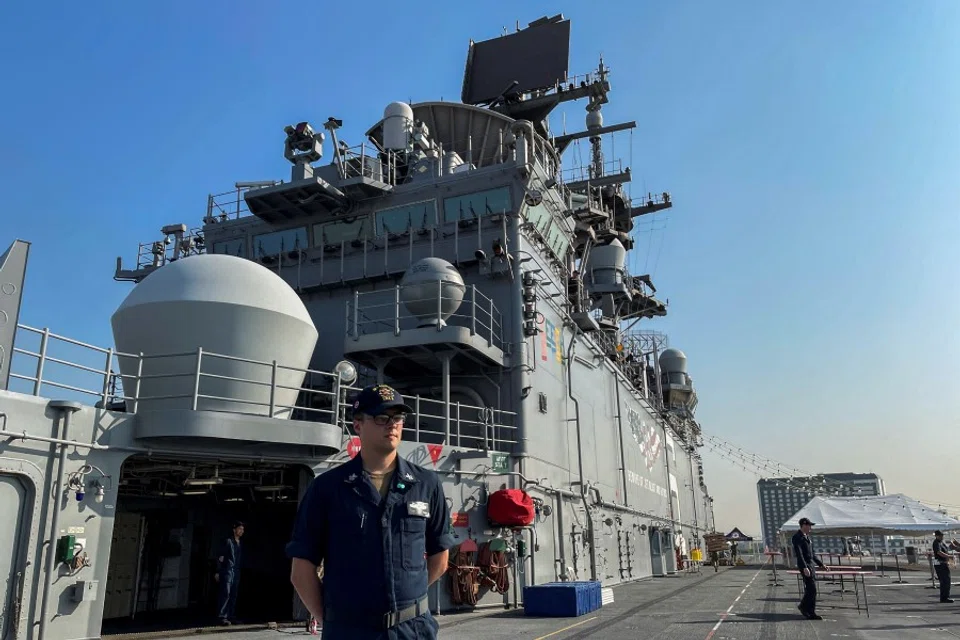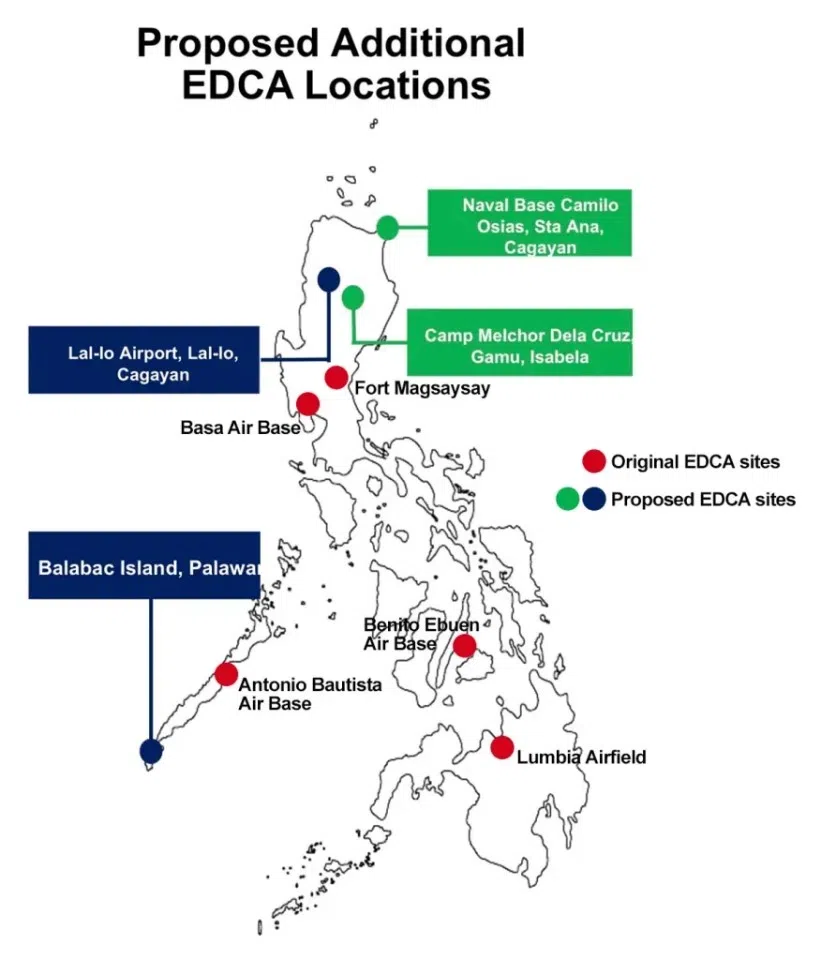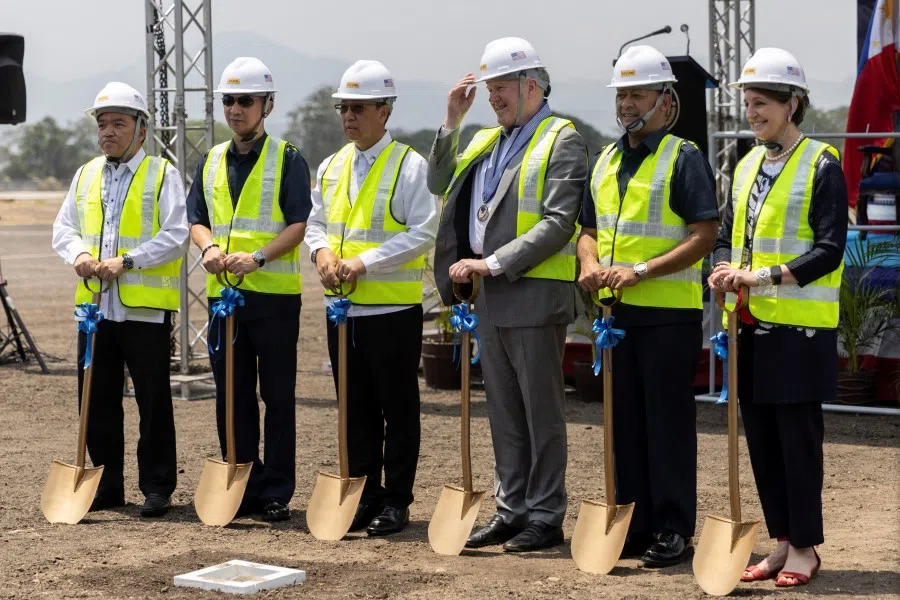US and China fight for influence in strategic provinces of the Philippines
The locus of superpower rivalry in the Indo-Pacific has gone down to the subnational level. The US and China are engaged in a power competition for influence within local governments in the Philippines, not least in the Cagayan area.

Changes in foreign policy under the Marcos Jr administration have highlighted the significance of protecting Philippine security interests amid an intensifying US-China rivalry. The Marcos Jr administration has reinvigorated the Enhanced Defense Cooperation Agreement (EDCA) with the US and adopted more assertive responses to Chinese intimidation in the West Philippine Sea (WPS). Behind these policy shifts, however, is the important role played by subnational political units or local governments as critical arenas of superpower competition.
In November 2022, the Philippine military announced that the implementation of EDCA will now include five additional sites - two in Cagayan and one each in Zambales, Palawan, and Isabela. All these provinces are located in the northern part of the Philippines with Cagayan being adjacent to Taiwan.
Signed in 2014, the EDCA aims to improve Philippines-US defence cooperation by allowing American troops to be temporarily based in Philippine military facilities. The EDCA was largely dormant during the Duterte administration.
Immediately, Cagayan governor Manuel Mamba opposed the proposal to have US troops in his province. Apart from not being consulted, he warned against the Philippines being used as a staging platform for the US defence of Taiwan...

The disclosure of the new sites preempted official government approval through the Department of Foreign Affairs. Originally, the Marcos Jr administration intended to conduct consultations with concerned provincial governments and other relevant stakeholders as this possibly entails the biggest presence of US troops on Philippine soil since American bases closed in 1992.
Given the country's decentralised governance set-up, local governments have a say in matters within their area. In foreign policy matters, politics in the Philippines rarely stop at the water's edge.
China's provincial government influence in the Philippines
Immediately, Cagayan governor Manuel Mamba opposed the proposal to have US troops in his province. Apart from not being consulted, he warned against the Philippines being used as a staging platform for the US defence of Taiwan, which would bring conflict to the country. He was also sceptical of EDCA's role in improving the national government's disaster response, given that US forces were never mobilised when previous typhoons hit his province.
Senator Marcos also warned that EDCA is making our military facilities vulnerable as "legitimate targets" of China.
Other Filipino politicians joined the anti-EDCA bandwagon. Senator Imee Marcos, sister of Marcos Jr, chaired a congressional hearing attended by several provincial governors in northern Philippines as well as relevant cabinet officials. As a former governor herself, she expressed that these new locations were imposed by the US without consent from local officials. Senator Marcos also warned that EDCA is making our military facilities vulnerable as "legitimate targets" of China.

Senator Marcos has made a valid point. The strategic importance of Cagayan's geographical location has been recognised by US and China even prior to the Marcos administration. Duterte insisted that the Philippines-US Balikatan war games in the WPS were provocative; as a result, the location of the joint military exercises was shifted to the archipelago's eastern frontier. In 2021 and 2022, Governor Mamba vehemently opposed the proposal for US-Philippine Balikatan live-fire exercises by saying that "we don't want to anger China here in Cagayan". Bowing to local pressure and lack of support from Duterte, the military scrapped the idea.
Economic benefits
But the peculiar regard of a provincial governor against provoking China may indicate the superpower's influence in Cagayan province. Chinese economic investments and other forms of diplomatic, political, and even socio-cultural initiatives peaked after Duterte's pivot to China.
While official statistics reveal that China is not the biggest foreign direct investor in Cagayan, the province has benefited from key national infrastructure projects under the Belt and Road Initiative (BRI). Among them is the nearly completed Chico River Pump Irrigation project that will provide services for some 8,700 hectares of farmland in the province.
Another proposed Chinese project is the conversion of Fuga island off the coast of Cagayan (near the Philippines' northern maritime border) to a "One Belt One Road New Smart City". Duterte agreed to the deal as part of his visit to Beijing in April 2019.
Similar to many BRI projects, this did not materialise when the Department of National Defense sought to strategically review the terms of the project. In addition, the powerful Enrile political dynasty, which has a foothold in the province and is a known adversary of the governor, has expressed opposition to the increasing Chinese influence in Cagayan.
In reality, China's investments in Cagayan are less on infrastructure but more on online gaming operations known as POGO (Philippine Offshore Gaming Operators) through the Cagayan Economic Zone Authority. The media has reported anomalies of tax evasion and illegal presence of Chinese nationals working in POGOs in the province.
These all suggest China's increasing footprint in the province (and concurrent political influence). Recently, President Marcos Jr proposed to re-examine the presence of POGOs given the declining revenue it brings to the country and its many problems.
The case of Cagayan reveals that US-China rivalry is now increasingly localised as their intensifying competition will now be played within the context of national-local political dynamics.

US-China rivalry going local
Cagayan's opposition to EDCA, however, was short-lived. On 6 March, the Commission on Elections reversed its ruling that should have removed Governor Mamba from office for violating electoral campaign laws during the 2022 elections. Within weeks, the local politician downplayed his criticism and succumbed to the national government's plan to install two EDCA sites in his province.
The timing of this change of heart appeared to be due to a quid pro quo. If this is true, it is not a coincidence. Within days and against China's stern warning, President Marcos Jr announced that the new EDCA locations had been finalised while Mamba hinted that two of these sites would be in his province.
The case of Cagayan reveals that US-China rivalry is now increasingly localised as their intensifying competition will now be played within the context of national-local political dynamics. In the fight for access to prime geopolitical real estate, superpowers will heighten their "influence operations" strategies that will inevitably draw local political elites in their fight to gain their favour.
The decentralised and dispersed nature of politics in the Philippines opens many paths for superpower influence. Local political elites can also leverage US-China competition to benefit their parochial political interests. It will be interesting to find common patterns of different narratives in other local areas in Southeast Asia.
Intensifying US-China rivalry has regional and global ramifications, but in the case of the Philippines - and possibly across Southeast Asia - it is increasingly apparent that superpower competition will be local.
This article was first published by ISEAS - Yusof Ishak Institute as a Fulcrum commentary.
Related: Chinese academic: The Philippines' closer ties with US could cross China's bottom line | It's hard for the Philippines to stay neutral in a Taiwan contingency | Between economy and security: Does the Philippines' Marcos Jr have a choice? | Is Philippine President Marcos Jr swinging too far back to the US?




![[Big read] When the Arctic opens, what happens to Singapore?](https://cassette.sphdigital.com.sg/image/thinkchina/da65edebca34645c711c55e83e9877109b3c53847ebb1305573974651df1d13a)
